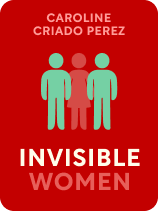

This article is an excerpt from the Shortform book guide to "Invisible Women" by Caroline Criado Perez. Shortform has the world's best summaries and analyses of books you should be reading.
Like this article? Sign up for a free trial here .
How does the gender data gap affect medicine? Why is there gender inequality in healthcare?
In Invisible Women, Caroline Criado Perez contends that many people have a male-as-default mindset. This mindset creates a gender data gap in the drug creation process—meaning we don’t know how medicines affect women because we don’t test them on women.
Keep reading to learn how the gender data gap affects women’s healthcare, especially with drugs and vaccines.
How the Gender Data Gap Affects Medicine
Perez explains that many pharmaceutical companies operate on a male-as-default mindset that creates gender inequality in healthcare. They test their drugs exclusively on men and assume they’ll also work on women. Why not include women? Women’s hormones fluctuate throughout their menstrual cycle. These companies worry that introducing this additional variable would make their test results less clear.
However, Perez argues, that this decision to not test drugs on women ultimately harms women’s health. Men and women are biologically different, so these drugs affect them differently. For example, women tend to metabolize drugs faster than men. So by giving women drugs that haven’t been tested on women, these companies are not supporting women’s health at best and actively harming it at worst. As evidence, Perez points to the fact that women are far more likely to experience an adverse drug reaction than men are. One of the most common is that the drug fails to treat the condition it’s supposed to.
(Shortform note: A year after Invisible Women was published, a study more specifically revealed the risks of not testing drugs on women. It examined 86 medications and found that when men and women took the same dosage of a particular medicine, women systematically experienced a higher number and greater frequency of adverse drug reactions and retained more of the drug in their bodies for a longer period than men did.)
Perez writes that in this way, our lack of data on how these drugs affect women leads to women taking drugs that don’t work for them and thus harm their health.
How the Male-as-Default Mindset Contributed to Vaccine Hesitancy in Women
Perez argues that ignoring gender-specific concerns when creating medicines contributed to some women’s Covid-19 vaccine hesitancy. The vaccine developers demonstrated a male-as-default mindset by not studying the menstrual effects of the vaccine—despite this applying to half the people who would take the vaccine. So although women reported changes to their menstrual cycles following their vaccines, their complaints were not taken seriously until September 2021, when the US National Institutes of Health agreed to research them.
This lack of information, Perez feels, led women to be wary of getting the Covid-19 vaccine because they weren’t sure how it would affect their cycles. Women did get updated information by January 2022, when study results demonstrated that while the Covid-19 vaccine does affect the menstrual cycle, these changes are likely only temporary. However, had vaccine developers started by assuming that the vaccine would affect men and women differently, they could have provided more accurate information to women earlier.

———End of Preview———
Like what you just read? Read the rest of the world's best book summary and analysis of Caroline Criado Perez's "Invisible Women" at Shortform .
Here's what you'll find in our full Invisible Women summary :
- How society's male-as-default mindset leads to a gender data gap
- Why cars don't properly protect women during accidents
- Why we don’t know how most medicines affect women






